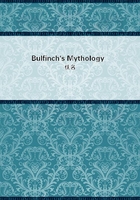
第50章
Monsters. Giants. Sphinx. Pegasus and the Chimaera.
Centaurs. Griffin. Pygmies Monsters, in the language of mythology, were beings of unnatural proportions or parts, usually regarded with terror, as possessing immense strength and ferocity, which they employed for the injury and annoyance of men. Some of them were supposed to combine the members of different animals; such were the Sphinx and the Chimaera; and to these all the terrible qualities of wild beasts were attributed, together with human sagacity and faculties.
Others, as the giants, differed from men chiefly in their size;and in this particular we must recognize a wide distinction among them. The human giants, if so they may be called, such as the Cyclopes, Antaeus, Orion, and others, must be supposed not to be altogether disproportioned to human beings, for they mingled in love and strife with them. But the superhuman giants, who warred with the gods, were of vastly larger dimensions. Tityus, we are told, when stretched on the plain, covered nine acres, and Enceladus required the whole of Mount AEtna to be laid upon him to keep him down.
We have already spoken of the war which the giants waged against the gods, and of its result. While this war lasted the giants proved a formidable enemy. Some of them, like Briareus, had a hundred arms; others, like Typhon, breathed out fire. At one time they put the gods to such fear that they fled into Egypt, and hid themselves under various forms. Jupiter took the form of a ram, whence he was afterwards worshipped in Egypt as the god Ammon, with curved horns. Apollo became a crow, Bacchus a goat, Diana a cat, Juno a cow, Venus a fish, Mercury a bird. At another time the giants attempted to climb up into heaven, and for that purpose took up the mountain Ossa and piled it on Pelion. They were at last subdued by thunderbolts, which Minerva invented, and taught Vulcan and his Cyclopes to make for Jupiter.
THE SPHINX
Laius, king of Thebes, was warned by an oracle that there was danger to his throne and life if his new-born son should be suffered to grow up. He therefore committed the child to the care of a herdsman, with orders to destroy him; but the herdsman, moved to pity, yet not daring entirely to disobey, tied up the child by the feet, and left him hanging to the branch of a tree.
Here the infant was found by a herdsman of Polybus, king of Corinth, who was pasturing his flock upon Mount Cithaeron.
Polybus and Merope, his wife, adopted the child, whom they called OEdipus, or Swollen-foot, for they had no children themselves, and in Corinth OEdipus grew up. But as OEdipus was at Delphi, the oracle prophesied to him that he should kill his father and marry his own mother. Fighting against Fate, OEdipus resolved to leave Corinth and his parents, for he thought that Polybus and Merope were meant by the oracle.
Soon afterwards, Laius being on his way to Delphi, accompanied only by one attendant, met in a narrow road a young man also driving in a chariot. On his refusal to leave the way at their command, the attendant killed one of his horses, and the stranger, filled with rage, slew both Laius and his attendant.
The young man was OEdipus, who thus unknowingly became the slayer of his own father.
Shortly after this event the city of Thebes was afflicted with a monster which infested the high-road. It was called the Sphinx.
It had the body of a lion, and the upper part of a woman. It lay crouched on the top of a rock, and stopped all travellers who came that way, proposing to them a riddle, with the condition that those who could solve it should pass safe, but those who failed should be killed. Not one had yet succeeded in solving it, and all had been slain. OEdipus was not daunted by these alarming accounts, but boldly advanced to the trial. The Sphinx asked him, "What animal is that which in the morning goes on four feet, at noon on two, and in the evening upon three?" OEdipus replied, "Man, who in childhood creeps on hands and knees, in manhood walks erect, and in old age with the aid of a staff."The Sphinx was so mortified at the solving of her riddle that she cast herself down from the rock and perished.
The gratitude of the people for their deliverance was so great that they made OEdipus their king, giving him in marriage their queen Jocasta. OEdipus, ignorant of his parentage, had already become the slayer of his father; in marrying the queen he became the husband of his mother. These horrors remained undiscovered, till at length Thebes was afflicted with famine and pestilence, and the oracle being consulted, the double crime of OEdipus came to light. Jocasta put an end to her own life, and OEdipus, seized with madness, tore out his eyes, and wandered away from Thebes, dreaded and abandoned hy all except his daughters, who faithfully adhered to him; till after a tedious period of miserable wandering, he found the termination of his wretched life.
PEGASUS AND THE CHIMAERA
When Perseus cut off Medusa's head, the blood sinking into the earth produced the winged horse Pegasus. Minerva caught and tamed him, and presented him to the Muses. The fountain Hippocrene, on the Muses' mountain Helicon, was opened by a kick from his hoof.